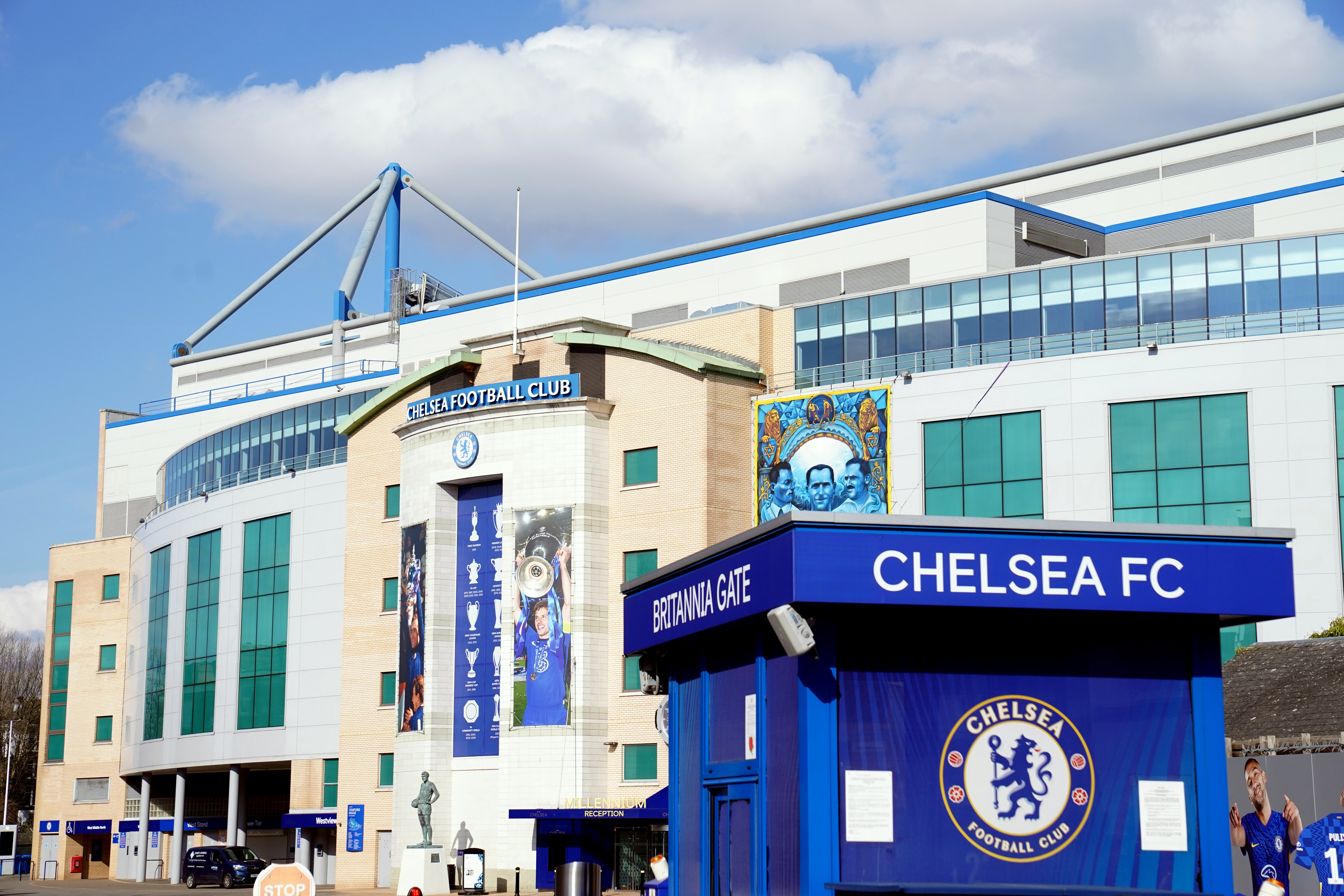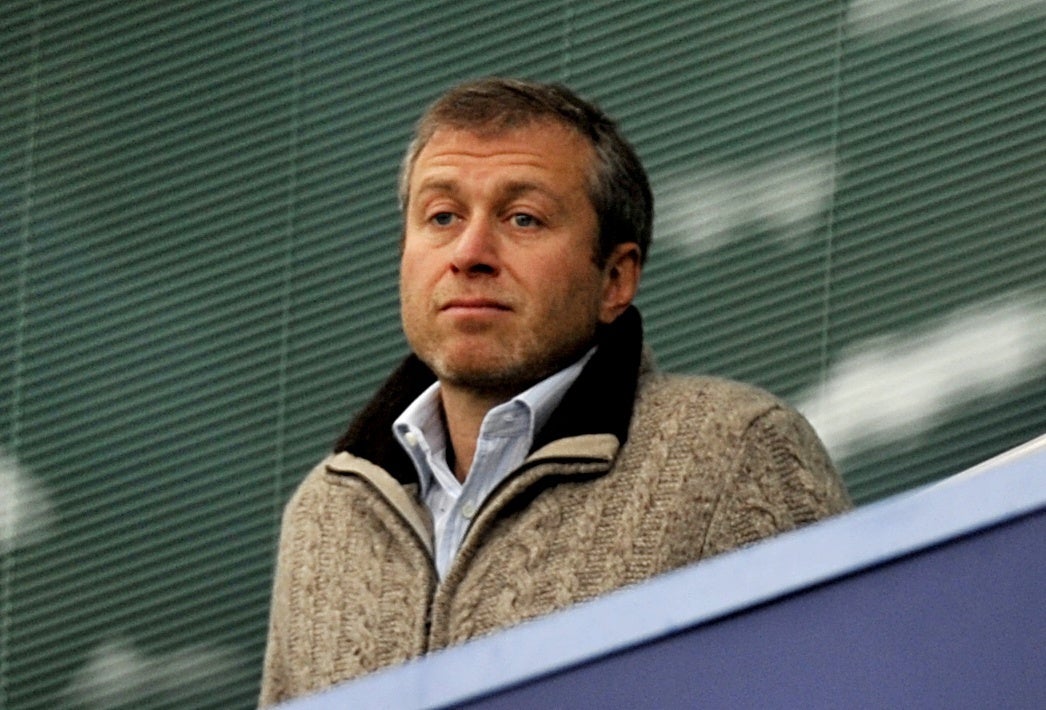Will the Chelsea takeover be a watershed moment for the Premier League?
For all the talk of review and reform to clean up dirty money funding the Premier League, there is little to indicate drastic change is coming

Mere hours before Friday’s 9pm deadline to bid for Chelsea, the consortium led by Todd Boehly were confident. There is an optimism they have the best all-round offer, right up to fan involvement.
Other well-placed sources urge more caution, and say to look away from where the noise is coming from. They insist some of the more interested parties have not yet come to light, because they do not feel the need to play this out in public. “There’s more posturing than reality – on all sides.” What was true was that, as of Friday morning, the number of parties at any kind of advanced stage was no more than three.
Friday will reveal who is serious. The same sources insist there is substance to interest from the Saudi Research and Media Group. Much could depend on the internal politics of Saudi Arabia, and whether crown prince Mohamed Bin Salman would want two clubs under the influence of his state. Sources close to the Public Investment Fund (PIF) – who own Newcastle United – are dubious it will happen.
If it were successful, however, that would leave open the possibility that the ultimate ruler of Saudi Arabia essentially has influence over 10 per cent of the Premier League. That, according to various figures in football and close to Saudi Arabian business, “would totally undermine the integrity of the Premier League”.
As to how that prospect will be acted upon, that’s where it gets even more complicated.
The Raine Group, mandated to handle the sale on behalf of Chelsea, will make the main decision on the bidders. Much will depend on the factors influencing the decision, but keeping the club at the top level is known to be one. The UK government is involved in awarding the new licence that allows the sale, and ensuring that any money does not go to Roman Abramovich.
After that, the Premier League Owners and Directors Test will decide whether the successful bidders are suitable.
The process will tell us if football has actually learned much over the last few weeks, and whether we are moving into a new era, where the game is more alert to how it has been hijacked by far higher powers.
This entire Chelsea story has articulated a number of core issues for the governance of the sport. There is the unquestioning embrace of any money, the protection of clubs, the slowness of regulation and – most of all – just how precariously subject football is to forces way beyond its control. This is the geopolitical position the game has got itself into.
The forced departure of Abramovich exploded the aloof fantasy the Premier League could forever go untouched by real-world concerns.

The tide is coming out, to paraphrase Warren Buffett, and it’s only now we’re discovering who’s been swimming with emperor’s – or perhaps state – clothes. Where once the Premier League saw international investment at so many clubs as piles of cash, it now looks like a lot of potential problems and financial holes. Gary Neville went on the country’s flagship live football programme on Sky Sports and pointed at the various clubs touched by this, referencing Chinese investment at Wolves and saying that Manchester City may have a problem with their Abu Dhabi ownership. He didn’t go as far as elaborating on the United Arab Emirates’ own war in Yemen and increasing pivot towards Russia, and the long-term problems they may cause, but it was a landmark moment. It forced a mainstream audience to confront discussions that had been bubbling under the surface. Officials at some clubs were said to be “livid”. There was at least some “unease” within the Premier League.
The game knows it has a problem coming. More progressive voices see it as a huge opportunity.
“This is the moment,” one prominent source says, “for both the Premier League and the Football Association. This is the chance.”
The big question, as Neville argued, is whether the sport is equipped to address it. Is there the vision? Is there the foresight? Or, will it all just get kicked into the foreground again, until the next periodic crisis that pushes the game that bit closer to the reckoning everyone knows is coming.
The initial signs, from speaking to a variety of sources for this piece, don’t indicate any kind of huge shift.
In public, the Premier League’s director of policy and corporate affairs Helen MacNamara made some of the right noises when speaking to the government select committee on Monday. She confirmed they’d been in talks with Amnesty about human rights provisions, and said the competition are keen “the gateway tests can be strengthened”. That’s encouraging but vague.
That’s partly because, in private, the Premier League are still formulating ideas. “There is a much greater awareness of all this now,” one source says. Another description was that “the scales have fallen from people’s eyes”.
That doesn’t necessarily mean the clearest vision follows.
The general mood is that there is no will for great change. Chief executive Richard Masters would rather oversee than overhaul. For all the fuss about potential human rights provisions, The Independent has been told that the main solution currently being considered is an adoption of the EU registry.
“That would be a pretty low bar,” one source says. “It would still allow almost anybody bar oligarchs, and that’s only from the last few weeks.”
The clubs are meanwhile never going to vote for changes, because they don’t want to further erode a small field of potential buyers.
That sums up the core problem, and how much of this comes from what the Premier League is and how it has developed.
Former chief executive Richard Scudamore set a philosophy where the competition was going to be a truly global league, encouraging investment from anywhere, and that in a country deliberately structured to do the same. Scudamore’s own belief was the market would sort it out. Oh that’s happened alright. It’s just the market isn’t an entirely independent force either, as the Chelsea case has proved. Before that, this atmosphere was only amplified by a Conservative government, the dynamic reaching a peak with how the politics of Saudi Arabia’s relationship with Britain framed the Newcastle takeover.
Sources within the Premier League point to how that process still took a fractious two years despite the criticism, and that the green light ultimately came from legal precedence. The problem with a moment that just represented a continuation of what went before is that it also became a landmark in itself.

If it is the Saudi bid that is put forward with Chelsea, for example, the Newcastle takeover would – absurdly – make it all impossible to stop. It would be very difficult to point to overt state influence as a concern when they had already accepted “legally binding assurances” that PIF was separate from that state.
So, the situation may just get worse, rather than better. There is never that line, in the way the game truly needs. Some figures within football already talk of how Masters was “like a rabbit in the headlights” with the Newcastle takeover.
The Premier League may well reach reductio ad absurdum, a point of absurdity it can’t work past. The great irony would be if it starts to damage the international image of the competition.
The Premier League would again just have to react too late, in the way it always does. That has been one of the problems.
Figures connected to the competition argue that’s just the nature of the beast, and you can only adapt to situations as they arise. They point to how regulations have been changed in the aftermath of cases like Carson Yeung at Birmingham City, as well as the collapses of Leeds United and Portsmouth.
“What you will find is regulatory framework is often behind regulatory needs,” one source says.
There will then be changes after Abramovich, but they will not be drastic.
“There’ll be more checks and balances,” the source adds. “It won’t be wholesale blocks against investment funds or states or high-net worth individuals.”
Other involved individuals argue this just shows a stasis in thinking at the same time the world changes all around them.
Worse, even if there were reformers in English football, none have the remit. The game is too fractured, with everything in the slipstream of the Premier League, and the Premier League controlled by the clubs. That’s the nature of the beast alright but, now, in terms of ownership, that beast is Frankenstein’s monster. It’s gone too far to control. The ownership decisions already taken mean the Premier League has little choice as regards decisions of the future.
Many in the body just argue this is simply correct procedure. Scudamore himself used to say you couldn’t have a “cut of the jib test”, where takeovers were decided upon depending on what felt right. Everything has to be legally defensible.
It just means the legal constraints are always catching up.
The hope is that isn’t the case with the “golden share”. The idea, where fans would have a veto on issues of club heritage like the badge and colours, was one of the main recommendations of Tracey Crouch’s fan-led review. It’s just it hasn’t actually been implemented yet.
The Independent has been told the government won’t make it a condition of the takeover, but there is a hope the momentum behind the review and pressure from the Chelsea Supporters Trust will make a difference.
“We have made it explicitly clear to the DCMS that the recommendations of the review must be included in any sale, including a golden share for fans,” a statement from the Trust read.
“The sale of Chelsea FC represents a fantastic opportunity for the Government to show that they are actually serious about improving football governance for the benefit of supporters.”
It’s still possible this takeover may fall into a regulatory limbo in that regard, albeit one that has already been four months long. That is how long it’s been since the review’s publication.
It isn’t unfeasible that limbo for Chelsea could go on, too. Many other Premier League officials are agitating to see what next.
There is still “soreness” over the Newcastle takeover. Some want Chelsea to pay for what is seen as years of unfair advantage.
It means there isn’t actually that room to manoeuvre. If Chelsea are sold too cheaply, it will be seen as anti-competitive. If the £1.5bn debt to Abramovich is written off, there will be arguments about a points deduction. On the other side, however, there will be complaints if anyone too rich comes in. That won’t be seen as any kind of penalty at all.
Some of this is undeniably driven by self-interest, and that illustrates how difficult any kind of clear path is.
“We are at a turning point in English football,” said Nigel Huddleston, under-secretary for the Department for Digital, Culture, Media and Sport (DCMS).
The problem is that the interests are so labyrinthine that there may be a further 50 turning points after that. That’s what we saw with the Super League. It’s like the game moves ever closer to a reckoning that still hasn’t come, but perpetually puts off what must be done to avoid it.
With this, no one actually believes that states or quasi-state organisations will be prohibited from buying clubs. The moment won’t come.
What happens next with Chelsea will tell us much, but will be very far from the final say.
Join our commenting forum
Join thought-provoking conversations, follow other Independent readers and see their replies
Comments
Bookmark popover
Removed from bookmarks